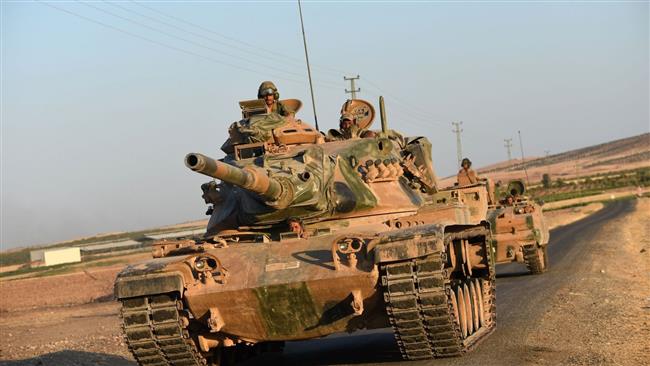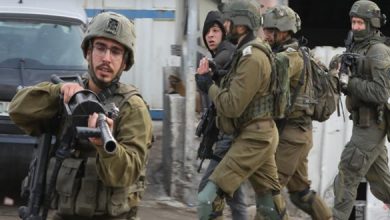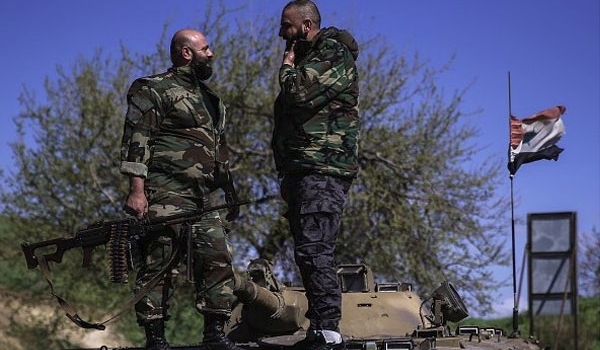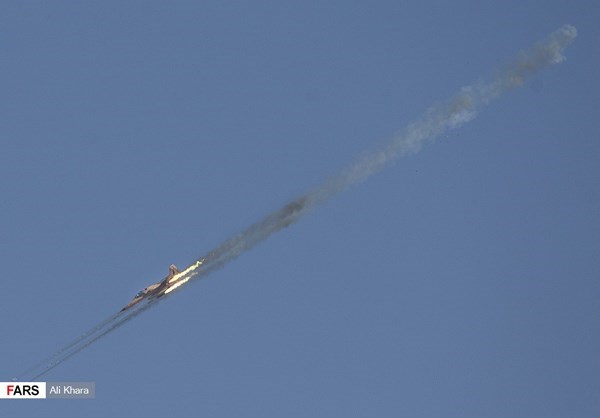Erdogan regime deploying forces to Syria’s terrorist-held Idlib: Report


The Turkish army is set to deploy forces to Syria’s militant-controlled northwestern Idlib province and establish military bases there, a report says.
The Beirut-based al-Mayadeen TV channel cited sources as saying on Saturday that the Turkish military had sent a telegram to militant groups operating in Idlib and informed them of the deployment.
Turkish forces, it said, would not attack the Jabhat Fateh al-Sham terrorist group, formerly known as al-Nusra Front, but would engage in a “diplomatic” process and push them to evacuate Idlib and hand over their positions to the Turkish army.
A Turkish envoy had personally conveyed the message during a meeting with militant ringleaders in Idlib, the report said.
“The Turkish forces will temporarily deploy inside the border villages with armored vehicles and infantry forces as a first step,” the telegram read.
It further urged the militants not to consider the Turkish troops as forces of occupation as it issued “security warning” against any resistance.
The report quoted a breakaway Syrian officer with the militants as confirming the Turkish army’s preparation to enter Idlib and establish military bases there.
However, the governor’s office in the southern Turkish province of Hatay denied the report.
“Such statements that were claimed by some Arabic websites and social media accounts saying that the Turkish army will enter the Idlib region are not reflecting the truth,” it said in a statement.
The alleged deployment plans come shortly after Turkey, Iran and Russia agreed in Astana to create four deescalation zones in main battlefields in Syria.
One of the safe zones includes Idlib Province and adjoining districts of Hama, Aleppo and Latakia provinces. The remaining three zones cover the northern parts of Homs Province, the Eastern Ghouta region near the capital, Damascus, and the area along the Jordanian border in southern Syria.

The agreement envisages a halt in fighting within the zones and the creation of conditions for humanitarian access, medical assistance, the restoration of damaged infrastructure and the return of displaced civilians to their homes.
Under the deal, the three guarantor states are committed to taking all the necessary measures to continue fighting the Daesh and Jabhat Fateh al-Sham terror outfits both within and beyond the safe zones.
In August 2016, Turkey began a unilateral military intervention in northern Syria, code-named Operation Euphrates Shield, sending tanks and warplanes across the border. Ankara claimed that its military campaign was aimed at pushing Daesh from Turkey’s border with Syria and stopping the advance of Kurdish forces, who were themselves fighting Daesh.
Turkey ended its military campaign in northern Syria in March 2017, but did not rule out the possibility of yet another act of military intervention inside Syria, which has has been gripped by deadly foreign-sponsored militancy since 2011.




